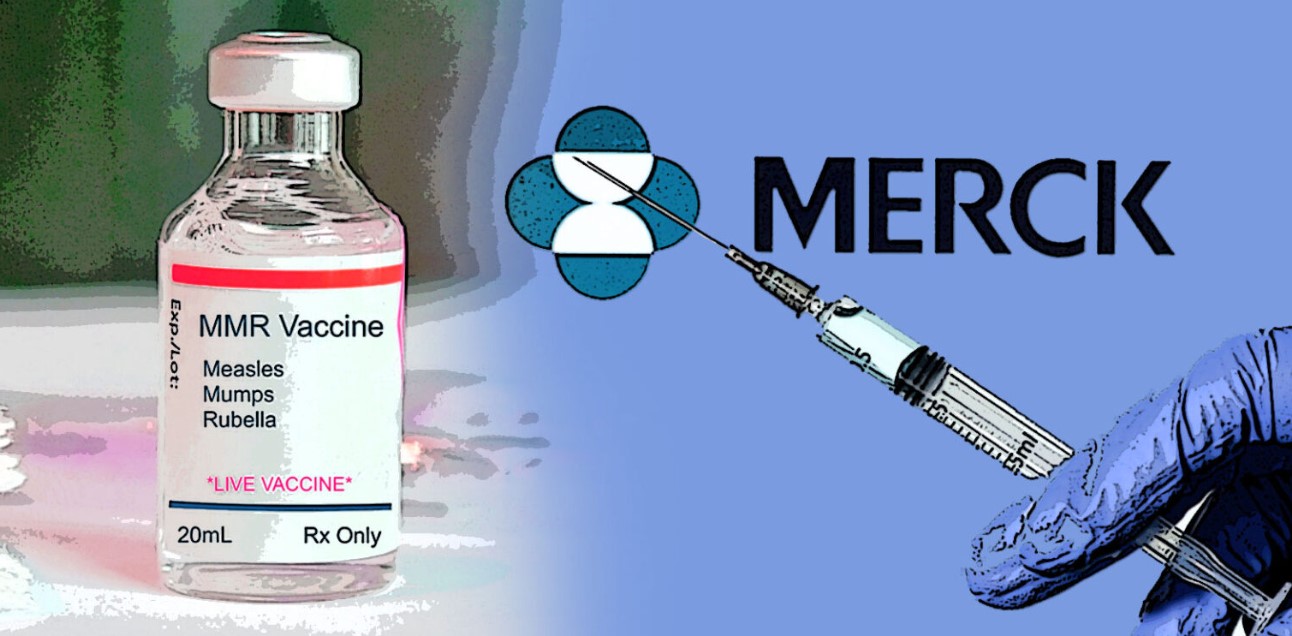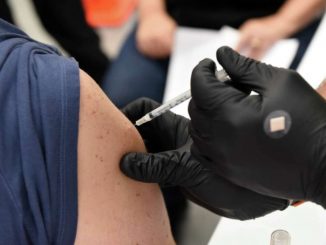
We agree with Mary Holland. This is a sad day for justice.
Editor Betsy Combier
Breaking: Appeals Court Dismisses Whistleblower Lawsuit Against Merck Over MMR Vaccine
A federal appeals court upheld a 2023 lower court ruling in a lawsuit alleging Merck misled the CDC about the potency of its mumps vaccine. Children’s Health Defense CEO Mary Holland, an attorney, called the decision “a very sad day for justice.”
The U.S. Court of Appeals for the 3rd Circuit upheld a July 2023 U.S. District Court decision in United States ex rel. Krahling v. Merck & Co., which found that even though Merck may have made false claims to the CDC, those claims didn’t play a role in the agency’s decision to purchase the vaccine for its Vaccines for Children Program.
“Even if we assume, as the District Court did, that Merck made misrepresentations (i.e., false claims), based on our de novo review of these considerations, no reasonable jury could conclude that the representations were material to the CDC’s purchasing decisions,” the ruling stated.
In other words, the judges said that even if the evidence shows the government knew about Merck’s misrepresentations and data falsification related to its mumps vaccine because the U.S. Food and Drug Administration (FDA) was aware of the behavior and the CDC continued to purchase the vaccine with that knowledge, the company was not in violation of the False Claims Act.
According to the ruling, the alleged fraud — misrepresenting and falsifying data about vaccine testing, potency and shelf life — was “minor or insubstantial.”
‘This is big money winning in court’
Attorney Mary Holland, CEO of Children’s Health Defense (CHD), told The Defender she was “astonished” the court could reach such a conclusion. “It’s a very sad day for justice.”
Holland said:
“The Court remarkably found that Merck’s alleged violations were ‘minor and insubstantial,’ defying logic. A decision like this makes people lose faith in courts as arbiters of justice.
“The plaintiff whistleblowers filed this False Claims Act case against Merck in 2010, over 14 years ago. They detailed outrageous fraud upon fraud by Merck, with apparent collusion by the FDA, to falsify the potency of the mumps component in the measles-mumps-rubella vaccine for which Merck held a patent.”
Brian Hooker, Ph.D., CHD’s chief scientific officer, said the decision makes it clear that Merck defrauded the government and the U.S. public and the company has been selling a defective product that has never has been appropriately tested for safety or efficacy and is known to lead to breakthrough mumps infections.
He added:
“However, in their conclusion, the court detailed how CDC can wave their magic wand and make this whole episode go away. The CDC simply colluded with Merck by buying and then foisting a defective product onto America’s children.
“Evidently, if the government knows it’s being defrauded, then fraud is OK — regardless of the collateral damage.”
Mark Blaxill, co-author of “The Age of Autism: Mercury, Medicine, and a Man-Made Epidemic,” who has covered the case since 2012 told The Defender he expects the CDC, FDA and Merck will argue that the decision vindicates them.
However, he said, all of the information that came out in the discovery process shows “the whistleblowers are the heroes here. They shone a light on the dirty dealmaking that goes on between the FDA and Big Pharma. It’s ugly, it’s unaccountable, and they cut corners and they do everything to keep information private.”
“This is big money winning in court,” he said, “because Merck had more money and more time and just took almost 15 years, spending enormous resources.”
‘The case should have been sent back to a jury’
In the late 1990s, a regulatory labeling review revealed that the mumps component of Merck’s measles, mumps and rubella vaccine, MMRII, did not maintain the stated potency — and therefore effectiveness — over its shelf life, in violation of FDA regulations.
Rather than recalling the vaccine or attempting to develop a different formula, the company spent years trying to develop new and more sensitive ways to test the existing vaccine that would show high efficacy results, so it would still be in compliance with regulatory requirements and allow Merck to maintain its exclusive license.
Merck did this even though its existing data showed the vaccine was significantly less effective than claimed, according to the former head of the FDA Dr. David Kessler, who wrote an expert report for the plaintiffs.
To achieve its potency claims, Merck and the FDA agreed the company would temporarily “overfill” the vaccine with extra virus, while it addressed the potency issue.
Stephen Krahling and Joan Wlochowski, who worked as virologists in the Merck lab that performed the efficacy testing, alleged that they witnessed improper testing, data falsification and violation of duties of government disclosure. They also alleged the vaccine is significantly less effective than Merck claimed.
The FDA inspected Merck’s lab and confirmed evidence of data falsification.
Krahling and Wlochowski in August 2010 sued Merck as “relators” on behalf of the U.S. government alleging the company engaged in efforts over more than a decade to hide the fact that its mumps vaccine was less effective than the company claims.
When people file cases as relators on behalf of the U.S. government, the government can decide whether it wants to intervene in the case. In 2012, after the government declined to intervene, Krahling and Wlochowski filed an amended complaint alleging the mumps vaccine was “mislabeled, misbranded, adulterated and falsely certified as having an efficacy rate that is significantly higher than it actually is.”
They said the company did this to maintain its monopoly on the mumps vaccine market and continue selling the vaccine to the U.S. government. As a result, Merck made hundreds of millions of dollars for a vaccine that doesn’t provide the immunization against disease that it claims.
“This vaccine has injured tens of thousands of children around the world, both directly in brain and other injuries, and indirectly, by failing to prevent disease and leaving them prey to mumps later in life,” Holland said.
“Again and again, the court repeats that ‘no reasonable jury’ could find for plaintiffs. The case should have been sent back to a jury — and then we would have learned how a ‘reasonable jury’ would decide.”
Dr. Andy Wakefield, director of the film “Protocol 7,” which chronicles the fraud, told The Defender, “First, the FDA and now the courts have decided to protect a demonstrably dishonest industry at the expense of U.S. children. The court’s decision is a disgrace. The award-winning movie ‘Protocol 7’ stands as an indelible record of Merck’s misconduct.”
See also:
Third Department Appellate Division Upholds Denial of COVID Exemptions For Nonjudicial Court Employees
Navy SEALs fired for refusing COVID vaccine for religious reasons score major win against Biden administration
Betsy Combier
betsy@advocatz.com
Editor, Parentadvocates.org
Editor, New York Court Corruption
Editor, National Public Voice
Editor, NYC Public Voice
Editor, Inside 3020-a Teacher Trials




